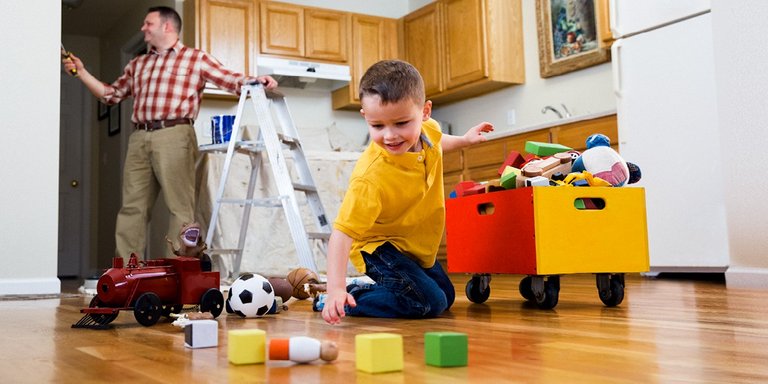

Household participation is the first, and I’d argue essential, step toward building a purpose-driven and fulfilling life for our children. Purpose is what saves us all from despair when the details of life become overwhelming or boring, and it is what fuels the determination, resourcefulness, and resolve that will see our children through to their goals
In some families, children are expected to help out around the house, and they do so without complaint. In other families, parents have lowered their expectations, and children—happy to oblige—have lowered their performance.
Researchers see this trend particularly in Western lands, where children tend to be consumers rather than contributors. “Today, children are left alone to play video games, surf the Internet, and watch TV,” observes a parent named Steven. “Very little is expected of them.”
What do you think? Are chores really important—not only for the upkeep of the home but also for a child’s development?
WHAT YOU SHOULD KNOW
Some parents are reluctant to assign chores, to their children, reasons!
It’s faster if I do it myself.
They will just do it wrong anyway.
Kids should be kids while they can; they will work when they grow up.
My house will look disgusting and people will judge me.
My kids will look disgusting and people will judge me.
Enough. It’s time to grant our kids the opportunity to contribute. Allow them to step up, try, fail, and try again until they get it right.
Consider the following benefits,
Chores contribute to a child’s maturity:

Children who take on household tasks are likely to be more successful at school, and no wonder. Helping out around the house helps a child develop confidence, self-discipline, and strength of character—essential tools for learning.
Chores prepare children to serve others:

Some have observed that children who are expected to help out at home are more likely to take on community service as adults. This is hardly surprising, since chores train them to put others’ needs above their own. On the other hand, it is often quoted “When nothing is expected of them, children learn that they are here to be served, and they grow up with a distorted view of what life will require of them in the way of responsibility and hard work.”
Chores promote family unity:

Through their efforts at home, children come to realize not only that they are a valued part of the family but also that they have a responsibility toward it. This lesson can be lost when parents place a higher priority on after-school activities than on chores. Ask yourself, ‘Of what benefit is it if my child forges a connection with the soccer team but loses his connection with the family team?’
WHAT YOU CAN DO
Start young.
Some say that parents should assign chores when children are three years of age. Others recommend two years of age or even younger. The point is, very young children love to work alongside their parents and imitate them.—Bible principle: Proverbs 22:6.
Assign age-appropriate chores.
For example, a three-year-old might pick up toys, clean up spills, or sort laundry. Older children can vacuum, wash the car, and even prepare a meal. Work with your child’s ability. You might be surprised at how enthusiastic he or she becomes about handling chores.
Place a priority on chores.
That might be difficult when your child faces a daily mountain of homework. However, eliminating chores for the sake of high grades “is a sign of misplaced priorities,” says the book The Price of Privilege. As stated earlier, handling chores helps children become better students. And the lessons learned prepare them for the time when they will have a family of their own.—Bible principle: Philippians 1:10.
Focus on the objective rather than the result.
It may take your child longer to complete a task than you would wish. You may also notice that the quality of the work could be better. When that happens, resist the urge to take over the task. Your objective is not to have the chore performed with adultlike precision but to help your child learn responsibility and discover the joy that work can bring.—Bible principle: Ecclesiastes 3:22.
Focus on the right reward.
Some say that paying a child to do chores teaches them responsibility. Others say that it makes children focus on what they can get from the family rather than on what they can contribute to it. They also warn that a child might refuse to do chores when he has enough money—a sign that the benefit of chores is being lost. The lesson? It might be better to keep a child’s chores and his allowance on separate tracks.
Reference
The Gift of Failure: How the Best Parents Learn to Let Go So Their Children Can Succeed (Harper Books, August 11, 2015).
Jw.org, awake!/No.3 2017
So true :)
Hello please kindly like my post too thanks
https://steemit.com/advice/@romantic4/dream-big
Hi! I am a robot. I just upvoted you! I found similar content that readers might be interested in:
https://www.jw.org/en/publications/magazines/awake-no3-2017-june/importance-of-chores/